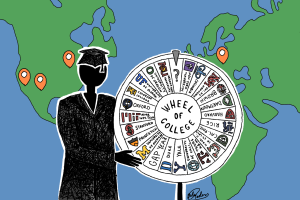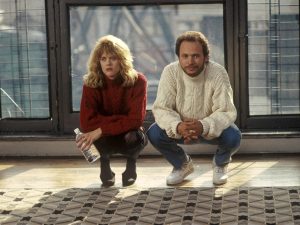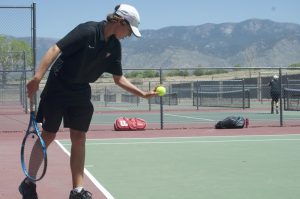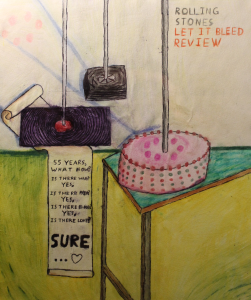We Should Return As Soon As Legally Allowable
Students don’t just want it, they need it.
October 13, 2020
Students at Albuquerque Academy should return to in-person learning as soon as Governor Michelle Lujan Grisham allows us to do so. Since Academy’s campus was shut down on March 11 due to possible exposure to COVID-19, members of the community have lost the opportunity to form bonds with each other that cannot be developed in zoom classes. These bonds are formed while passing on the Path, conversing in the library, or stumbling upon one another in the small yet meaningful occurrences that happen day to day on a campus such as ours, with its cherished nooks and crannies. The shutdown of schools due to COVID-19 has shaken each of us and removed access to a place many know as a second home – our campus. Not only have we lost these moments, but students have experienced loss of focus, stress due to heavy homework loads, social isolation, and mental health issues, all of which already existed at our school but have been amplified by the tragedy of a global pandemic. Academy has created a solid COVID-19 prevention program, and since most Academy students want to return to school, there is no good reason to delay once the Governor gives the go-ahead.
The primary reason we should return to school in-person as soon as possible is that most students feel they learn better in person. In a survey sent out by Academy in June, 61% of students reported that they would prefer to return to school in-person. Another 29% said they would prefer hybrid learning while only 10% wanted to return online. According to a 1,000 person survey of college students by The College Fix, 79% of students feel the quality of their education is worse with online learning. It’s difficult for students to focus in their classes when they are at home and there are no consequences for checking your phone or even muting the zoom class and watching a movie. In a home setting there are so many distractions, and unless your parents have nothing better to do but look over your shoulder and make sure you’re paying attention, there’s not much to do about these distractions, especially when you’re a teenager and struggle with impulse control. Lack of focus in classes leads to lack of understanding, especially those courses in which you have to take in and understand a lot of information at a time, like math or science. This lack of understanding leads to more time spent on homework and more stress related to school. Many students feel they have a heavier homework load this school year, with 41% in 6-12 reporting in a September survey they have more homework than they had during spring online learning. This feeling is exacerbated when we don’t focus on the material. For all the valiant efforts of our teachers, they can’t physically be there to make sure we are focused and engaged. It would be difficult and an interruption to the lesson for teachers to call out students every time they think we’re looking at our phones, especially when we could be doing things like taking notes.
Students at Academy are also in a crucial developmental stage of their lives. According to the National Institute of Mental Health, “ongoing changes in the brain, along with physical, emotional, and social changes, can make teens vulnerable to mental health problems.” The COVID-19 pandemic has caused immense social change in our lives. We are more and more dependent on technology for human connection, and we are able to filter our social interactions so that we only experience what we want. Through technology we avoid the most uncomfortable interactions in our lives. We no longer have to do intensive group work with people we might not like. We don’t have to run into exes (significant others or friends) in the hallways, and we don’t have to talk to people we don’t know very well. When removed from comfort zones and habit, the human brain grows. Without these uncomfortable social interactions, we aren’t growing into adults that will be able to handle situations such as tough work colleagues. We are creating for ourselves a time in the future when society and new people will make us anxious. According to Rogers Behavioral Health, children will “struggle with how to socialize again when they’re back in a face-to-face setting after months of virtual-only connections,” not to mention the loneliness that many feel when they aren’t able to see their friends on a daily basis. FaceTime isn’t the same as sitting in the grass with friends on a sunny day or bonding with classmates you’ve never talked to before. What were once daily activities now have to be planned and aggressively advertised by class officers and the deans. To minimize the impact of decreased socialization, it’s important for us to go back to school sooner rather than later.
Academy has developed a solid COVID-19 prevention system that will be able to adapt if a member of the community is infected. Under the Academy system, students will be organized into cohorts to prevent mixing and to track infection. The learning reimagined page states that “this will allow us to quarantine/present online lessons to a small group of students should someone become infected or exposed”. In addition, students are encouraged to leave campus when they don’t have class, and hallways will also be monitored to keep students of different cohorts from coming into contact with each other. Masks are required, and there is a hand washing schedule for everyone throughout the day. Every night, classrooms will be deep cleaned through “ionized aerosol disinfection.” All Academy protocols follow CDC guidelines and Academy’s reopening task force includes the school nurse, Shelby Parsons, and a physician, John Pederson. With these tactics in place, students can and should return. A successful return to in-person learning will lead the way for other independent schools in New Mexico, and will project the message that this virus can be lived through. Our mental and emotional health, as well as our futures, depend on it.








Diego Sanchez • Oct 15, 2020 at 8:52 am
I am torn! I really can’t take anymore popsicle headaches, and five hours of zoom? C’mon! (I think the school can do better.) But I also think that being safe is above all. I’m not worried about the students (we have a very low chance of getting anything serious) but the teachers! However, Audrey, you are an amazing writer and I love how you carefully planned the report.
Aubrey Bestelmeyer • Oct 14, 2020 at 7:44 pm
I love your argument! This has been especially hard for me, considering I am very social. It is awful to see everyone online and not get to be with them. Well done, thank you for being our voice, we need to get back! I don’t want to spend my first year of middle school cooped up in my room. You are a spectacular reporter!
Sierra Sedillo • Oct 14, 2020 at 1:31 pm
I 100% agree! We NEED to return to school ASAP! We need more social interactions outside of our family, and a great way to do that is to return to campus. Way to go Audrey!
Olivia Mulkey • Oct 14, 2020 at 10:52 am
I think your argument falls flat if it means people die. Imagine quarantining for six months, only to come back too soon and contact COVID-19. Mental health is extremely important, but I believe there are ways to cope and bond with others outside of being in person with them. We don’t have a 100% effective vaccine as of right now, so it’d be terrifying if someone got infected. Over 200,000 people have died of COVID-19 in America. This is pandemic is nothing to be calm about. Not to mention, going back to school in person puts students’ families at risk as well. In my opinion, it’d be inconsiderate to put our need for socialization above the lives of our peers.
Joleen Buchanan • Oct 14, 2020 at 8:49 am
I completely agree! We should return to school as soon as we can. Every day after school I have headaches and my eyes hurt from sitting in front of a computer all day. I also feel we are not getting the same hands-on education that we should be getting.
Elly Morgan • Oct 14, 2020 at 8:46 am
I completely agree with this, I think students need to form bonds in person. I am a 6th grader, and I would love to meet more people, and be on the beautiful campus!